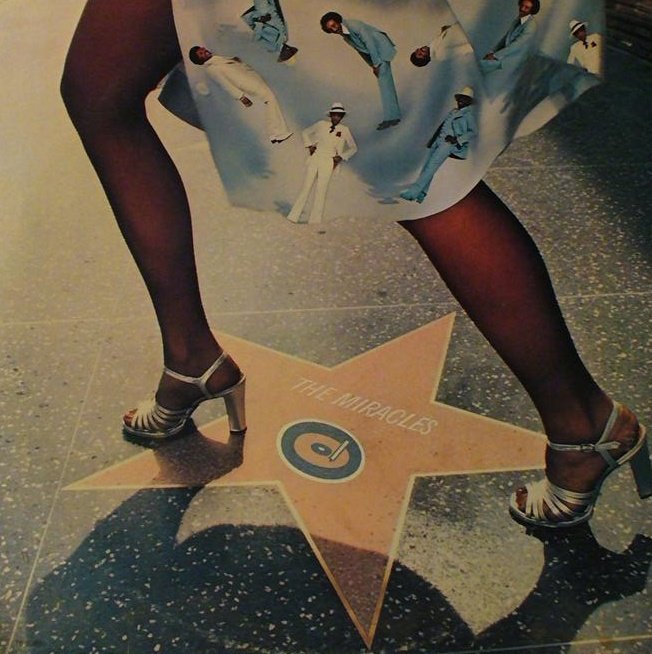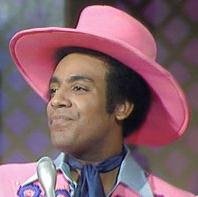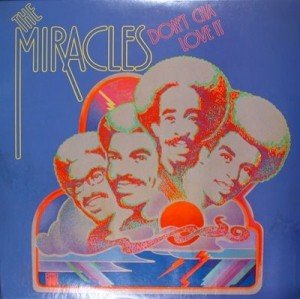THE MIRACLES - CITY OF ANGELS: A Conceptual Soul Classic From An Unexpected Source
Motown Records was a challenging place to be during the 1970's if your name didn't begin with Diana, Marvin or Stevie. For starters, label honcho Berry Gordy had moved the whole operation to Los Angeles and shifted his focus to expanding the label's reach into film and television. The label's non-superstar acts were frequently left to fend for themselves in a constantly-evolving marketplace where Motown was no longer the king of pop-soul mountain.The Miracles had it twice as hard: not only had they ceased to be frequent attractions on the pop charts, they also had to contend with the loss of their marquee-quality frontman and songwriting legend, Smokey Robinson. However, they persevered by bringing in a new lead tenor, Billy Griffin, and forging ahead with new material. They scored a d isco-tinged hit with "Do It, Baby" but the real 1970's-era classic for the group was City Of Angels, a conceptually-oriented opus that revolved around the concept of life in their new home of Los Angeles. It produced a smash hit in the form of "Love Machine" but that's just part of what's going on within its grooves.The narrative laid out in the album's liner notes concerns itself with a young singer's journey to Los Angeles to find the girl who left him to try for fame in the big city. However, the songs mostly avoid telling the story in a literal, Broadway-musical style. Instead, they gel together to create an impressionistic portrait of Los Angeles, exploring the city's pleasures as well as its dark side. The conceptual approach was no mere marketing hook. This was clearly a passion project for the group: Griffin and Pete Moore wrote all the songs, with Moore also assisting producer Freddie Perren to create the album's cinemascope-huge sound.
isco-tinged hit with "Do It, Baby" but the real 1970's-era classic for the group was City Of Angels, a conceptually-oriented opus that revolved around the concept of life in their new home of Los Angeles. It produced a smash hit in the form of "Love Machine" but that's just part of what's going on within its grooves.The narrative laid out in the album's liner notes concerns itself with a young singer's journey to Los Angeles to find the girl who left him to try for fame in the big city. However, the songs mostly avoid telling the story in a literal, Broadway-musical style. Instead, they gel together to create an impressionistic portrait of Los Angeles, exploring the city's pleasures as well as its dark side. The conceptual approach was no mere marketing hook. This was clearly a passion project for the group: Griffin and Pete Moore wrote all the songs, with Moore also assisting producer Freddie Perren to create the album's cinemascope-huge sound. As for the songs themselves, they cleverly fuse the group's focus on multi-part harmony vocals to disco-styled grooves and offset the often adult nature of the lyrics with simple, sing-along hooks at chorus time. "Love Machine" is the obvious hit, a song that updates their doo-wop vocal style for the dancefloor, and "Free Press" and "Night Life" follow a similar tack. The title track represents the other side of the group's sound, a close-harmony pop ballad with a swooning orchestral backing.Elsewhere, the group proves they weren't afraid to court controversy with songs like "Poor Charlotte," a jazzy ballad about a would-be star who ends up as another Hollywood tragedy, and "Ain't Nobody Straight In L.A.," a bemused but open-minded meditation on the polymorphous approach to sexuality in the title city. Along these lines, the album serves up a killer deep cut in the fancifully titled "Waldo Roderick DeHammersmith," a gritty character portrait of an L.A. hustler that plays like a melodically-sweeter version of the streetwise message tunes that the Temptations did with Norman Whitfield.
As for the songs themselves, they cleverly fuse the group's focus on multi-part harmony vocals to disco-styled grooves and offset the often adult nature of the lyrics with simple, sing-along hooks at chorus time. "Love Machine" is the obvious hit, a song that updates their doo-wop vocal style for the dancefloor, and "Free Press" and "Night Life" follow a similar tack. The title track represents the other side of the group's sound, a close-harmony pop ballad with a swooning orchestral backing.Elsewhere, the group proves they weren't afraid to court controversy with songs like "Poor Charlotte," a jazzy ballad about a would-be star who ends up as another Hollywood tragedy, and "Ain't Nobody Straight In L.A.," a bemused but open-minded meditation on the polymorphous approach to sexuality in the title city. Along these lines, the album serves up a killer deep cut in the fancifully titled "Waldo Roderick DeHammersmith," a gritty character portrait of an L.A. hustler that plays like a melodically-sweeter version of the streetwise message tunes that the Temptations did with Norman Whitfield. The arrangements supporting the group's ambitious approach are appropriately lavish. The majority of the tracks feature sleek string and horn arrangements by Wade Marcus, the best being the sweet, Latin-tinged soundscape he created for "Ain't Nobody Straight In L.A." Producer Freddie Perren gives everything the sleekness necessary to keep the album user-friendly but isn't afraid to experiment: the highlight in this arena is the bizarre electronic effects and spacey synths used to create the dreamy, meditative mood of album closer "Smog."The end result is a true movie for the ears: it even includes some spoken bits, the best being the group's amusing observations on L.A. nightlife in "Ain't Nobody Straight In L.A." However, it's an instantly accessible listen thanks to the group's smooth harmonies and focus on old-fashioned songcraft. These qualities make City Of Angels a thoroughly pleasant voyage into a conceptual soul, the best moment of the Miracles' post-Smokey career and a must for Motown fanatics.
The arrangements supporting the group's ambitious approach are appropriately lavish. The majority of the tracks feature sleek string and horn arrangements by Wade Marcus, the best being the sweet, Latin-tinged soundscape he created for "Ain't Nobody Straight In L.A." Producer Freddie Perren gives everything the sleekness necessary to keep the album user-friendly but isn't afraid to experiment: the highlight in this arena is the bizarre electronic effects and spacey synths used to create the dreamy, meditative mood of album closer "Smog."The end result is a true movie for the ears: it even includes some spoken bits, the best being the group's amusing observations on L.A. nightlife in "Ain't Nobody Straight In L.A." However, it's an instantly accessible listen thanks to the group's smooth harmonies and focus on old-fashioned songcraft. These qualities make City Of Angels a thoroughly pleasant voyage into a conceptual soul, the best moment of the Miracles' post-Smokey career and a must for Motown fanatics.


